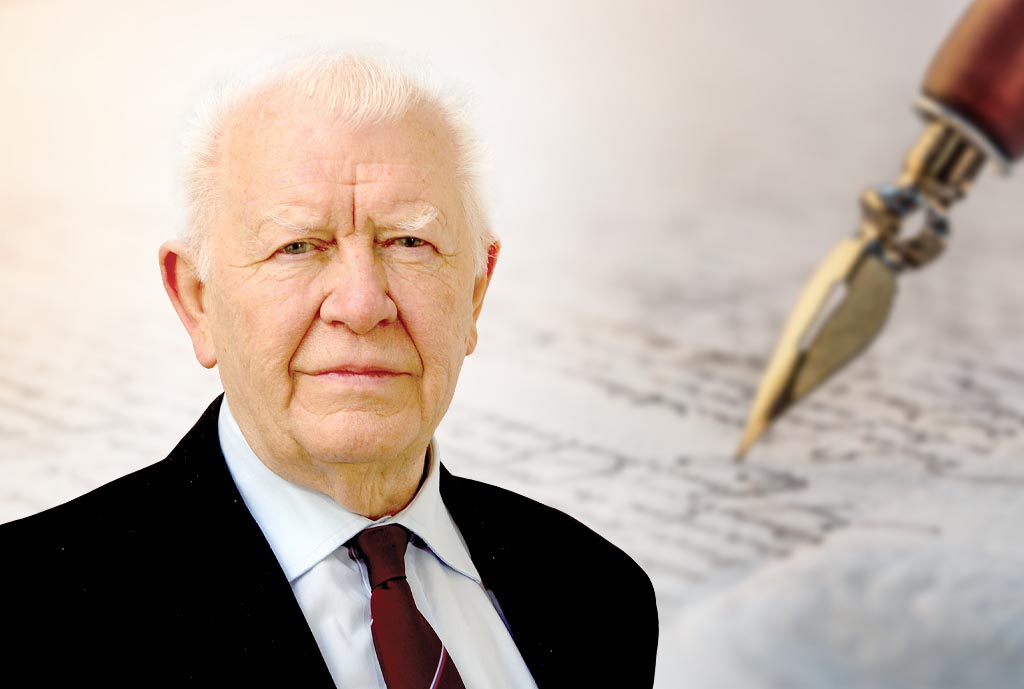By: Keith Miles
I wonder how many times Poland will have to save Europe? And how many people know the heroic nature of Poland’s centuries-long struggle to preserve its own country?
If our leaders and teachers study Polish history, they will understand not only the strong Polish support for an independent Ukrainian state, but also why Poland will not allow the European Union to diminish the importance of nations.
The history of Poland is not particularly well known, because after being torn apart by the surrounding powers, they had no interest in educating their population about the merits of the Poles.
It seems to me that there are three phases to think about in Polish modern history. The first is the so-called Golden Age, when Poland was a kingdom from 1025 and when it united with Lithuania in 1569. The second phase was from 1772, when it was divided between neighbouring countries, until 1918, when the republic was established. This lasted until 1939, when Nazi Germany and the communist Soviet Union divided it again. After World War II, it was effectively a fiefdom of the USSR. The third phase began in 1990, when the communist totalitarian government was overthrown, and the third republic began to function.
The Golden Age is remarkable in many ways and to some extent resembles developments in England, which the absolutist monarchies surrounding Poland did not approve of. Poland, although much larger than England from the 12th to the 18th century and militarily more powerful for most of that period, did not have the advantage of a surrounding and defensive protective sea.
The achievements of the Golden Age are numerous, but the following stand out in particular; Christianisation in 966, the Statute of Kalisz, which granted unprecedented autonomy to Polish Jews and thus attracted persecuted Jews from other parts of Europe, the opening of the University of Krakow in 1364, the establishment of a bicameral parliament in 1493, the transfer of legislative power from the monarch to the parliament in 1505 (early form constitutional monarchy), tolerance towards Protestantism in the 16th century, and John III Sobieski helped Austria break the Ottoman siege of Vienna in 1683 and thus saved Europe for the first time.
The years of partition were obviously negative for Poland, but the Polish people never lost their will to regain their own country, and there were several uprisings. The adoption of the first modern constitution in Europe in 1791 was undoubtedly an attempt to preserve some autonomy, but it clearly upset the absolute monarchies that divided the country. However, their best chance came in 1918 after the First World War, when the Second Republic was established and they had to defend their independence from the Bolshevik Red Army, and by defeating it in the Battle of Warsaw, they saved Europe for the second time. After the loss of statehood in 1939 in favour of Germany and the Soviet Union, Poland resisted internally as partisans, but externally joined the Allies with its pilots and soldiers. The most notable were their achievements in the biggest air battle of the time, the “Battle of Britain”. During the Second World War, Poland was the scene of many massacres and war crimes, especially the extermination camps, as well as the Soviet massacre of Polish officers in Katyn and civilians in the Soviet occupation zone. About 6 million Poles lost their lives, 50 percent of them Jews.
The country was re-established in 1945 under Soviet auspices and communist rule from 1947 to 1989, which the Poles resisted again and again and never gave up their goal of becoming a free democratic country. This was achieved in 1990 after the successful operation of the independent trade union Solidarity. With the arrival of the Polish Pope John Paul II. and with the Solidarity movement and with the open support of Reagan and Thatcher, the liberation of Central and Eastern Europe from communist dictatorship and oppression began. We can say that Poland saved Europe for the third time.
Of course, there are many famous Polish artists and scientists, and this article is too short to mention them all, but Frideric Chopin, Marie Curie, Artur Rubinstein, Joseph Conrad, Czesław Milosz, and Andrzej Wajda should be mentioned. It will also surprise many that filmmakers Samuel Goldwyn and the Warner brothers came from Poland.
Poland was quick to help Ukraine in its struggle for freedom, at great economic cost to it, while also setting an example for the rest of Europe and the world.
If we consider not only achievements, but also centuries of struggle, Poland is truly a nation of heroes with strong democratic instincts.
Perhaps with a determination to preserve the nation-state against the pressures of the empire builders in Brussels, they will once again save Europe.

